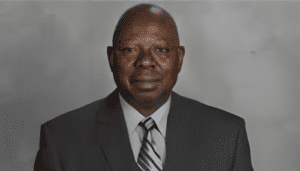NGX closes 2021 with 6.07% growth despite fragile economic performance
The Nigerian stock market opened trading in 2021 with great expectations, having been adjudged the best globally in 2020 with a return of 50.03 per cent.
Operators and analysts had predicted a positive outing for the stock market in 2021, based on the robust 2020 performance and early passage of the 2021 appropriation bill.
However, the Nigerian stock market recorded mixed performances and volatile sessions with a year-to-date gain of 6.07 per cent, compared with 50.03 per cent in 2020.
Specifically, the All-Share Index which opened trading for the year at 40,270.72 increased by 2,445.72 or 6.07 per cent to close at 42,716.44 as at Dec. 31, 2021.
Also, the market capitalisation which opened the year at N21.057 trillion inched higher by N1.239 trillion to close at N22.296 trillion as at Dec. 31, 2021.
In 2021, seven companies were delisted from the Nigerian Exchange Ltd. (NGX), up from five in 2020.
Also, the market witnessed the listing of four companies in 2021 as against one in 2020.
Briclinks Africa Plc, Guaranty Trust Holding Company Plc (GT HoldCo), Nigerian Exchange Group and Ronchess Global Resources Plc were the companies listed in 2021.
The delisted companies included 11 Plc, Evans Medical Plc, Nigeria-German Chemicals Plc, Roads Nigeria Plc and Unic Diversified Holdings Plc, Studio Press Nigeria Plc, Union Diagnostic and Clinical Services Plc.
Four, out of the delisted companies, were excluded by the NGX due to nonconformity to its regulations and three companies voluntarily delisted.
In the same vein, the trade metrics on volume of transactions so far stood at 79.31 billion shares against 85.30 billion units posted in 2020.
Indeed, experts expected a better outing for the stock market in 2021, rather than the tepid 6.07 per cent growth, considered a far cry from the 50.03 per cent growth achieved in 2020 in spite of the negative effects of the COVID-19 pandemic.
Expectation of a better performance for the market was also fueled by some improvements in real GDP growth compared to the economic downturn of the previous year, which was largely on account of COVID-19 pandemic.
For example, GDP growth rate in the second and third quarters stood at 5.01 per cent and 4.03 per cent respectively, powered mostly by the non-oil sector.
Also, worthy of mention is the fact that headline inflation began a downward trajectory since April.
Not surprisingly, these positive macroeconomic developments have not made any significant impact on the stock market.
This is partly because the quarterly GDP growth rates had a lot to do with what is statistically known as the base effect in the computation of GDP, given the deep economic recession experienced during the corresponding periods.
Commenting on the performance of the stock market, Prof. Uche Uwaleke, President of the Association of the Capital Market Academics in Nigeria (ACMAN), said the market was affected by rising yields in the fixed income market and double-digit inflation.
Uwaleke said the inflation rate may be decelerating but the double-digit rate was still high to support any meaningful growth in the stock market.
“Other factors, which presented challenges to real traction of the stock market in 2021, included the high exchange rates as well as rising yields in the fixed income market due in part to increase in government’s borrowing.
“Recall that the remarkable performance of the stock market in 2020, despite the pandemic, was largely on account of the low yield environment made possible by the accommodative monetary policy stance of the Central Bank of Nigeria.
“Going by the domestic and foreign portfolio investment report of the Nigerian Exchange Ltd., it is equally obvious that the global crisis occasioned by the pandemic contributed in keeping away foreign investors as activities in the nation’s bourse were dominated by domestic investors just like the situation in 2020,” he said.
Uwaleke noted that a return of about five per cent recorded by the nation’s bourse was a far cry when compared with 50.03 per cent posted in 2020.
He said the bonds market was relatively active in 2021 and as usual dominated by the activities of the federal government.
According to him, other notable developments include the demutualisation of the Nigerian Stock Exchange as well as the introduction of equity derivative contracts.
On expectations for the stock market in 2022, Uwaleke said the planned interest rate normalisation in developed countries would have a negative impact on the Nigerian economy including the stock market.
“First, bond yields will rise and will result in capital flow reversals in frontier and emerging markets.
“So, Nigeria should expect further capital outflows as a consequence which will hurt the stock market.
“We also know that exit of foreign investors usually puts pressure on the foreign exchange market.
“Therefore, another implication is depletion of foreign reserves and a higher exchange rate of the naira,” he said.
Uwaleke predicted that the Central Bank of Nigeria (CBN) might be compelled to tighten monetary policy stance with adverse consequences for economic recovery in order to stem capital flow reversal.
“In relation to the stock market, a higher monetary policy rate, for example, could lead to rising yields in the fixed income market and portfolio rebalancing away from equities and in favour of fixed income securities.
“I can also bet that the over N6 trillion deficit in the 2022 budget and government borrowing plans to finance the deficit will impact the stock market in several ways.
“It stands to reason that the more the government borrows to finance budget deficit; the more interest rates are driven up and as yields in the fixed income space go up, investors will naturally migrate from equities to government securities,” he said.
He added that he foresaw the yield environment in 2022 returning to the pre-COVID era and having a huge toll on the equities market.
“One thing is almost certain: the planned removal of fuel subsidy following implementation of the PIA by mid-2022 as well as the huge 2022 budget deficit will lead to higher headline inflation.
“The tight monetary policy that will follow to stem inflation and exchange rate pressure will result in higher fixed income yields and make equities investment less attractive,” Uwaleke added.
To Mr Ambrose Omordion, the Chief Operating Officer, InvestData Ltd., the performance of the stock market in 2021 was driven by mixed factors.
He said the factors ranged from positive economic data and corporate earnings that beat investors’ expectations in the midst of different wave of COVID-19 variants and oil prices touching high of 85 dollars before trading on the average of 72 dollars and 65 dollars.
Omordion said the outlook for the stock market and the economy for 2022 remained mixed and dicey being a pre-election year with expectations of change in economic policies of the government.
He said the planned removal of fuel subsidy would shape the economy and influence the stock market positively or negatively depending on investors sentiment and level of liquidity.
Also speaking, the Managing Director, Morgan Capital Securities Ltd., Mr Rotimi Olubi, said the performance of the market in 2022 would be characterised by several factors.
Olubi listed the factors as likely increase in interest rate by the US Federation to curb inflation and to rejuvenate the US economy.
He explained that this would give strength to the dollar thus a weaker Naira that would lead to capital flight.
Olubi added that the introduction of IFRS 17 for insurance companies, which would impact the reporting of insurance company’s contract would lead to repricing of assets and lower valuation metrics.
“The year 2022 is a pre-election year. There will be some level of uncertainty and unrest.
“The quest for a change in leadership of the ruling party may lead to violence. Risk averse investors will steer clear of the capital markets until there is a clear direction of the economy,” he said.




